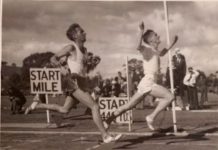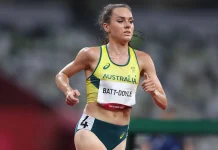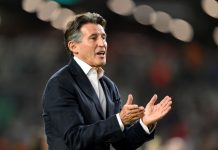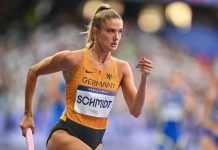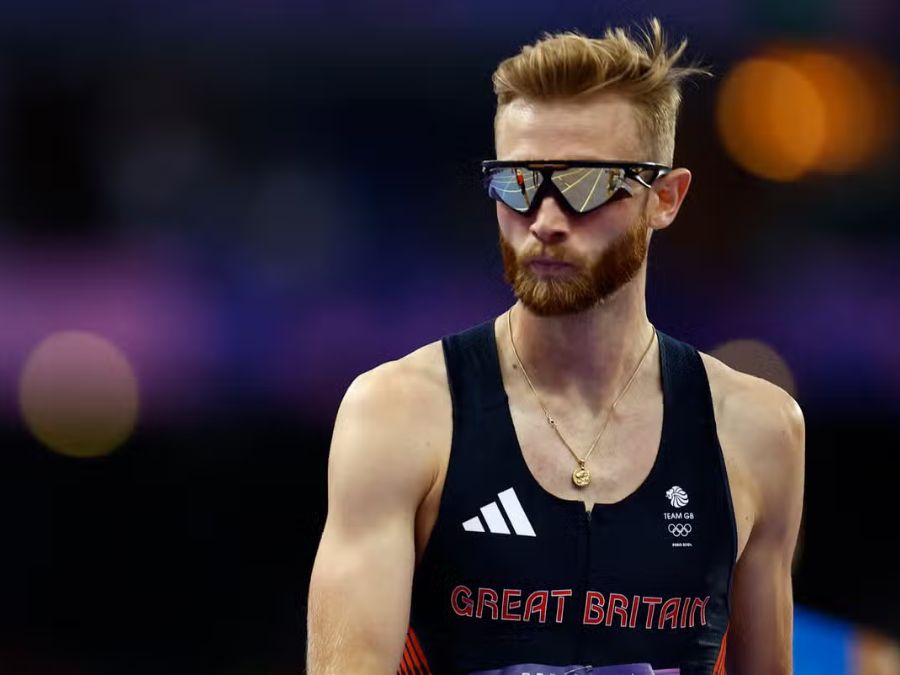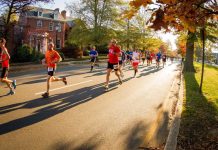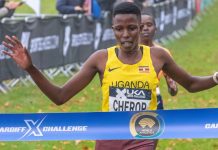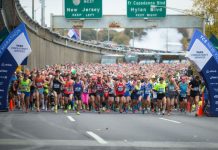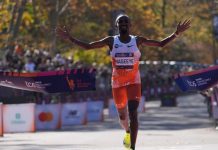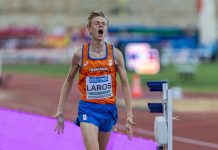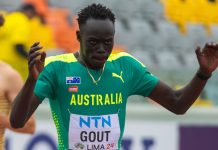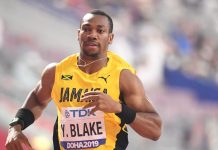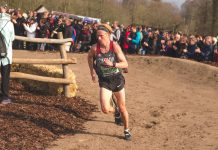Josh Kerr emphasized that the pre-race hype about his rivalry with Jakob Ingebrigtsen did not impact the dramatic outcome of the 1500m final, where he earned the silver medal.
Kerr set a new British national record, while Ingebrigtsen, the favorite and Kerr’s main rival, started too fast and ended up fading to fourth. In a surprising twist, American Cole Hocker won gold, with Kerr, who looked like a potential winner midway through the race, choosing not to blame his well-publicized rivalry for the result. Although the anticipated head-to-head clash did not materialize, Kerr remained content with his performance.
“The storylines will continue as they always do,” Kerr commented. “People will talk over the next few days. But this is a high-pressure environment, and we only get to compete like this every four years. I aimed for a medal that would place me at the top of the world. I didn’t achieve that, but I consistently deliver strong performances at these championships that I can be proud of. This was my best effort.”
When asked if he had interacted with Ingebrigtsen after the race, Kerr replied, “I shook his hand, but that was about it. I know he would have been disappointed with his performance today.”
Kerr expressed pride in his performance, recording a time of 3 minutes 27.79 seconds in an electrifying and fast-paced final. “I stated my goals clearly, and I put out a performance today that I’m extremely proud of. I focused on what I could control and ran the best and fastest tactical 1500m of my life.”
Although it was a personal best for Kerr, it wasn’t enough to outpace the 23-year-old Hocker, who cut nearly three seconds off his previous fastest time. “This journey isn’t over. I really wanted it today,” said Kerr, who improved on his bronze from Tokyo. “It makes me hungry and ready for more.”
Ingebrigtsen admitted to a tactical error by starting too quickly, which led to his strategy failing in the final stages as Hocker and bronze medallist Yared Nuguse overtook him. “I felt extremely good, which is why I pushed the pace too hard,” said the Norwegian, surprised to see he had completed the first lap two seconds faster than planned. “I got a starting gap and got a little too eager. Of course, it’s not the outcome I wanted. I can only blame myself.”
Ingebrigtsen downplayed the impact of his rivalry with Kerr on his race assessment. “It doesn’t mean that much. The key issue was that I ruined the race for myself.”
Kerr acknowledged Ingebrigtsen’s misjudgment, noting that his absence from the podium was not unexpected. “Starting at sub-world record pace without a pacemaker is a bold move. He went out a bit too hard, and you could see in the last 200m that he was checking to see if we were still there—and we were. It was a brave strategy, but it didn’t work out today. Nonetheless, it made for an incredible race.”
 Hocker, who finished sixth in Tokyo, suggested that the focus on Kerr and Ingebrigtsen worked to his benefit. “The headlines were about them, and rightly so,” he said. “It can be advantageous to stay under the radar. People in the race knew I was a competitor. Not having that noise around me helped, and I took advantage of it.”
Hocker, who finished sixth in Tokyo, suggested that the focus on Kerr and Ingebrigtsen worked to his benefit. “The headlines were about them, and rightly so,” he said. “It can be advantageous to stay under the radar. People in the race knew I was a competitor. Not having that noise around me helped, and I took advantage of it.”
Neil Gourley, who finished 10th, noted that he had anticipated the winner might come from outside the Kerr-Ingebrigtsen rivalry. “Everyone assumed it would be one of those two guys because of their recent performances,” Gourley observed. “But from an athlete’s perspective, you notice patterns in how competitors run. Maybe it was partly the pre-race noise, but I think it was more about analyzing what Cole has been doing lately.”



